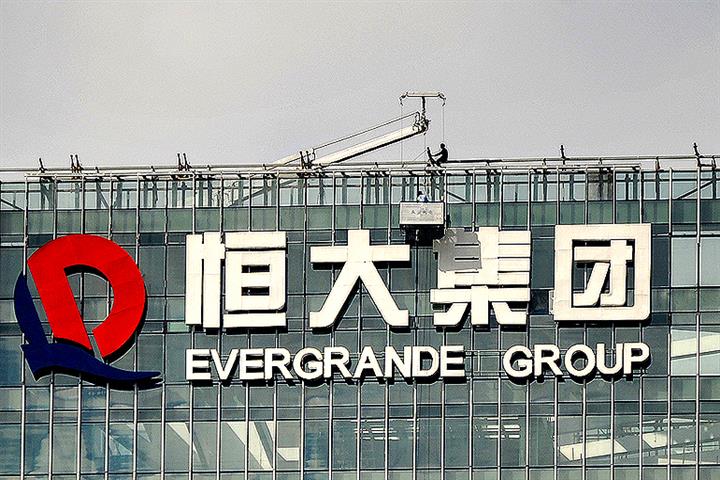Many Chinese homeowners would rather have an empty flat than renting it out because of low rental yield. Why incur the wear and tear if the profit is so low? So to lure private companies into the rental business, the Chinese doled out incentive packages. Rental startups jumped on board, and being under the government’s aegis earned them confidence from high-profile regional and global investors, who helped raise the country’s first rental unicorn. Few years of rapid expansion, however, show that the enthusiasm is largely misled - rental startups’ asset-light models will not and cannot be profitable in China.
Rental startups’ rise to prominence
Just a few years before, renting in China was unglamorous and largely intended for rural-urban migrants. Tenants and homeowners do not have equal access to public services such as education. Many of the rental units were of poor conditions. As runaway property prices in 2016 are posing sizable macro-risks, Chinese government buckled down to make renting more desirable. The list of policies rolled out includes extending tenants’ rights, increased liquidity in rental housing finance and land earmarked for building rental units. Riding on this wave of policy changes, rental platforms raised angel rounds from investors around the world for aggressive expansion. Danke, one of the biggest players, raised its $14M A+ round in June 2017. A few months later, its major rival Ziroom raised a $621M series A round in Jan 2018 and became the country’s first rental unicorn in the same year. Backing these startups are big regional and global investors such as Warburg Pincus, General Atlantic, Tencent and GIC.
Rental startups exploded in scale by burning through the generously given heap of cash. Ziroom announced that it has more than doubled its rooms from 400K to 1M and expanded from 5 to 9 cities between 2017 and 2020. Danke, established 4 years after Ziroom in 2015, operates in 13 cities and currently manages more than 400K rooms. Qingke and Danke completed their IPOs in the US in 2019 and 2020 respectively.
Like WeWork, these operators use an “asset-light” model where they do not own any property. They sign multi-year contracts with landlords and year-long leasing agreements with renters. As a middleman, they take care of finding new tenants and maintaining the room conditions. Supposedly, they earn profits by renting the refurbished rooms at a premium and provide add-on services such as cleaning. To grow market share, however, they sometimes rent rooms at rates lower than what they pay the landlord. Many also practise the so-called “rental loans” to increase working capital for more room acquisition: when the tenant gets on board, the rental company takes out a loan with a lending institution such that the tenant’s rent is actually a monthly loan repayment.
An asset-light model that will not be profitable
Not owning any property means these platforms will still have to pay the landlords even if the properties are vacant. Breaking even therefore depends significantly on minimizing vacancy rate. To compete for tenants and to increase working capital, these platforms also offer discounts to those who can pay the year’s rent in advance. The landlords, on the other hand, are only paid by month. Anecdotes shared on China’s social media platforms reveal that the rent these platforms received from tenants can be as much as 30% lower than the landlord payment. This puts the businesses under a huge risk of balance sheet maturity mismatch.
Months of working from home/ lockdown pulled the trigger. Income stream was drying for many rental platforms as migrant workers left the city and few renters were willing or able to pay in advance. Unable to fulfill monthly landlord payments, rental companies began to terminate or break leasing agreements. Landlords who were owed payments from these platforms were desperate to evict tenants who had already paid rent in advance. Danke apartments was in the crossfire of public outrage: Landlords and tenants stormed Danke’s offices to demand conflict resolution, municipal authorities had to issue guidelines (link in Chinese) to stop landlords from cutting water and electricity to evict tenants. Across the nation, affected stakeholders form rights protection (wei quan) groups on social media to exchange advice.
![Will the 'egg shell' break? How is Internet company's performance in the long-term housing rental market – Lynn Hou / Issues and Concepts in Digital Society (2020-2021)[SEM1]](https://static.cnbetacdn.com/article/2020/1121/a4d18f6d574f8a8.jpeg) Landlords and tenants demanding refunds at Danke apartments' office (Photo credits: cnbetacdn.com)
Landlords and tenants demanding refunds at Danke apartments' office (Photo credits: cnbetacdn.com)
The current mess has much to do with rental platforms’ operation of an asset-heavy business using an asset-light model. The failure is not new: Campus and WeLive in the US went nowhere because of a similar reason. Being asset-light means any short-term occupancy will be detrimental to the profit margin because of high fixed costs. Profitability, while not absent, is limited. While the Chinese rental platforms do not have to rely on a well-to-do, adventurous millennial population like the US co-living startups do, they are less likely to weather an economic downturn because of their competitive strategies: Borrowing from the future to finance the current gap between tenant and landlord payments means a sudden dry-up of income will throw the business in a limbo.
An asset-light model that cannot be profitable
And even if there is no balance sheet mismatch, the asset-light model cannot be profitable in China. High fixed costs made Campus and WeLive susceptible to a recession, or even just lukewarm occupancy rates. Similarly, even if the market consolidates and the major players implicitly agree to not undercut each other, the “survivors” will have to break even by at least charging the amount the landlord requests. To charge higher, the rental platform will have to add value to the accommodation with refurbishment or add-ons such as cleaning. But rental platforms have already been accused of driving rents up among major cities, and they had been pledging measures to increase affordability after signals from the officials. No business thrives in China by going against the government. To follow the government’s policy agenda, asset-light rental platforms cannot charge a high rate that makes it profitable.
These businesses’ financial performance show how disastrous their business model is. Danke has been in the red for the past 5 years and its loss in 2019 (3.4 billion RMB) more than doubled its loss in 2018 (1.4 billion RMB). Qingke’s loss has also increased by 5.1% in 2019. For others that are not as high-profile as these two US-listed companies, 70 closed shop between January 2017 and August 2020.
How about an asset-heavy model?
If an asset-light model does not work, how about a conventional, asset-heavy model where developers rent the properties they own? In 2018, China Daily reported that around one-third of China’s top real estate developers have started projects to develop rental units. Hong Kong’s Gaw Capital Partner set up a $2.6 billion rental housing fund with the Shanghai-based co-living space operator Harbor Apartments in 2018. A few of the developers, including Evergrande and Country Garden were also allowed to issue asset-backed securities (ABS) linked to their rental properties. But the disproportionate debt assumed by some developers is posing significant risk to the economy and provoking stricter regulatory responses. In 2018, mainland stock exchanges shut down at least six ABS issuances, some of which are related to rental housing finance. Evergrande, the second largest developer in China, allegedly pleaded for government’s financial help in August, warning of potential credit crunch. The current liquidity crunch makes it difficult for developers to realise the massive upfront investment required by an asset-heavy model. And again, it is questionable how much profit the model can make without irking party leaders further.
 Evergrande Group, the most indebted developer in China. (Photo credits: Yicai)
Evergrande Group, the most indebted developer in China. (Photo credits: Yicai)
Rental platforms in China targeted the FOMO mentality of the VC world for tech startups and branded themselves accordingly, hiding what essentially is an asset-heavy business to raise massive funding from around the globe. Investment in China always involves more than examining the business model, the policy direction almost always determines the viability of the model. And as matter currently stands, rental business in China has vast market potential, but will hardly be the next goose that lays golden eggs.

.jpeg)




